The Sustainability Research & Innovation (SRI) Congress is the world’s largest transdisciplinary gathering for the global sustainability community. The third edition of the SRI Congress, SRI2023, was hosted by the National Secretariat of Science, Technology and Innovation of the Republic of Panama (SENACYT) and the Inter-American Institute for Global Change Research (IAI).
SRI is a joint initiative of Future Earth and the Belmont Forum.
Turning the Tide for Climate: Collaborative Action for Institutional Transformation
Climate change requires urgent action that engages all sectors of society and transforms fundamental institutions and systems that underpinning our societies. But how to build these new impact coalitions and how to make them fair and effective and equitable? How can these new and diverse collaborations accelerate a rapid, sustainable and positive change that doesn’t deepen but rather reduce existing inequalities? What are the tradeoffs and how do we manage them?
SRI2023 explored pathways to informed and just changes in critical systems, such as political/governance, financial, legal, tax, energy and production, transport, research, education and value systems through the lenses of:
This event showcased the richness of African perspectives in sustainability science and innovation. Drawing from the deeply rooted cultural and traditional contexts that value harmonious relationships between humans and nature and the innovations that characterize unrivaled economic growth, the African region has a wealth of knowledge and innovation to offer the wider world.
- Environmental and social justice
- New concepts and measurements of wealth, value, merit and well-being
- Sustainable consumption and production (including clean energy)
- Opportunities and ethics of technological innovation, including carbon mitigation and drawdown
- Cohesive legal frameworks for addressing interrelated climate / environmental challenges and disasters and advancing climate action
- Evidence uptake and informed decision-making
- North-north and south-south collaboration for systems change
Africa satellite event from 20 to 22 June 2023
The program for the #SRI2023 🇿🇦 Africa Satellite Event is now available.
— Sustainability Research & Innovation Congress (@SRICongress) June 12, 2023
👉 https://t.co/X5Q0swmhLq
The program will be a mixture of cross-cutting plenary sessions, parallel thematic sessions, and live discussion tables.#SustainableAction@NRF_News @mandelauni pic.twitter.com/Tf2WxhTo4D
This in-person event took place at Nelson Mandela University, in Gqeberha (Port Elizabeth), South Africa.
It provided a platform for engagement, and collaboration and create opportunities for researchers and scientists, research managers, policymakers, and industry experts to share their ideas, relevant knowledge, and information in order to highlight and showcase regional sustainability challenges and opportunities in the region.
This event showcased the richness of African perspectives in sustainability science and innovation. Drawing from the deeply rooted cultural and traditional contexts that value harmonious relationships between humans and nature and the innovations that characterize unrivaled economic growth, the African region has a wealth of knowledge and innovation to offer the wider world.
Extracts of the programme
20/06 Accelerators of Science and Technology: global role and sustainable impact.
Synchrotron light sources are very large scale research infrastructures. The are giant multidisciplinary super-microscopes using very intense X-rays, infra-red or UV to study the detailed atomic structure of all materials (also biological)The African Light Source (AfLS) Foundation is mandated to drive the progress along the Roadmap towards the establishment of an Advanced Light Source on the African Continent. Early ideas and conversations dating from the turn of century have now led to a rather broad, unified and inclusive grouping, which forms a coherent home of its own and many other projects with the common vision for an Advanced Light Source in Africa.
In this session, panelists discussed the role of how established research facilities can bring together global scientific communities, where the mission of advancing science intermixes finely with a firm societal commitment.
- Gihan Kamel - the emerging cooperation between the established Middle East SESAME
Synchrotron Light Source and the African Light Source Foundation (AfLS) - Sekazi Mtingwa - The importance of establishing the African Light Source having Africa the only continent left behind without this kind of technology
- Galileo Violini - The importance of having Synchrotrons in the South,
- Abel Moreno Cárcamo - Infrastructural and financial requirements of building a green-field modern Synchrotron Light Source
- Júlio César R. F. de Oliveira, CEO at Pi-Tecnologia, a Brazilian company producing advanced detectors for X rays - The bridge between science and industry and the potential technological impact of Synchrotron Light Sources
- Boubakar Barry, CEO at the West and Central African Research and Education Network - The crucial connectivity between the facilities and the user's home institution
The discussion included the aspects mentioned above and other essential issues, such as the importance of women in science, capacity building and development in different emerging synchrotron light initiatives in Central America and Africa.
20/06 Advancing sustainable research and innovation through science diplomacy
The session discussed how science diplomacy can support sustainable research and innovation. The session drew on perspectives from government, academia, research institutions, and international organisations.
20/06 Belmont Forum Africa Regional Call Funders and Experts Meeting
 20/06 Coordinating climate change adaptation actions for resilient health systems in Africa: case studies across the continent and an interventional framework
20/06 Coordinating climate change adaptation actions for resilient health systems in Africa: case studies across the continent and an interventional framework
- Moderator Dr. Vincent Pagiwa (Botswana) A multi-sectorial coordination adaptation framework for the health sector in Africa.
- Dr. Samson Mhizha (Zimbabwe) Resilience building among the vulnerable and marginalized populations in Zimbabwe.
- Dr. Seraphine Mokake (Cameroon) The use of indigenous knowledge system interventions to respond to climate change health impacts in Cameroon.
- Dr. Siewe Fodjo Joseph Nelson (Cameroon) A vector control technique against blackflies to curb onchocerciasis transmission.
- Dr. Brighton Chunga (Malawi) Interventions to manage and allocate water during climate change influenced disasters in Africa.
- Dr. Nkechi S. Owoo (Ghana) Effects of multidimensional poverty on climate adaptation and mitigation, coping and adaptation strategies in response to climate change in Ghana.
- Dr. Jumoke I. Oladele (Nigeria) African tailored mental-wellbeing scale as a nondrug-based therapy interventions for supporting health systems.
20/06 Future Earth Water-Energy-Food Nexus GRN: Shaping the future of knowledge co-production and transformation co-design toward sustainability
The contribution of Future Earth Water-Energy-Food Nexus (FE WFE Nexus) GRN in advancing sustainability science and announces the establishment of the WFE Nexus international project office.- Future Earth supports 27 Global Research Networks that together address the complex interactions between natural, social and technological systems, and how those interactions affect, across time and space, the planet’s life support systems, socio economic development, and human wellbeing.
- The Future Earth’s Water-Energy-Food Nexus Knowledge-Action Network is a network of people and organizations working to address nexus challenges.
- Future Earth is funded by a range of private and public foundations, government agencies, universities and other groups (such as European Space Agency, Global Environment Facility (GEF),
- Belmont Forum, Institut de Recherche sur le Développement (IRD), etc..
- The EU is supporting the Nexus Regional Dialogues Programme, an independent information and facilitating platform developed within the framework of the Global Programme 'Nexus Regional Dialogues'. It is implemented by the Deutsche Gesellschaft für Internationale Zusammenarbeit (GIZ) jointly funded by the Federal Ministry for Economic Cooperation and Development (BMZ) and the European Union.
The presentations highlighted the FE WFE Nexus GRN contribution to:
- the facilitation of research & innovation through projects initiated and led by the community members
- the support provided by FE WFE Nexus GRN in building and mobilizing networks, and a report on some contributions to support the early career scientists in the field of Nexus
- the contribution to shaping the Global Narrative
- See: JRC (2021) Water, Energy, Food Security, Ecosystems in Africa – JRC Technical Reports # 68 p.
20/06 Sustainable food packaging
The session had industry experts from packaging technologies to food scientists that discussed around the possibility of creating sustainable and eco-friendly packaging (convenient foods and shelf stable foods).20/06 Connecting Science to Society: A Network Approach to Improving Science Communication in the Global South
The session addressed barriers in science communication while providing the needed incentives to support researchers from the global south to engage more with lay audiences. The session was held under a Transformation Collaboratory method.
- Strengthening synergies between research and innovation systems.
Effective science communication can be a bridge to better interaction between the worlds of research, innovation, and the general society. Issues/questions: - science communication workshop series for capacity building? - strengthening research and innovation funding capacity? - a cultural shift towards supporting research, innovation, and entrepreneurship? - supporting coordinated networking assets that enable productive interconnectivity among various research and innovation stakeholders? - embedding gender equality and social inclusion at the center of ecosystem participation? - pathways to scale up research and innovation diffusion? - Increasing research discoverability and accessibility among early career researchers in the global south, to advance innovation.
Open infrastructures like Crossref enables connections between publications, people, organizations, and other associated outputs through metadata, preserving the metadata and making it available across a range of interfaces and formats so that society can use it and build tools with it. Issues/questions: - innovating in isolation vs leveraging collaboration and knowledge sharing. - how rich metadata enhances discoverability. - integrating open science and FAIRE data principles (findability, accessibility, interoperability, reusability) in the innovation process.
20/06 Environmental Sustainability, Collaborative Actions and the Changing African Climate
- Source Separation for Recycling among Nigerian Households and its Implications for Sustainability and Environmental Policy by Nnanna Onuoha Arukwe, Ph.D (Visiting Scholar, Taiwan Center for Security Studies, National Chengchi University, Taipei City & Ms Chiamaka Precious Eke, Department of Sociology & Anthropology, Faculty of the Social Sciences, University of Nigeria, Nsukka).
- Effects of Climate Change on Productivity Growth in Cameroon by Jerome Muakang Kum, Ph.D (University of Bamenda, Cameroon)
- Framework for Food Systems Resilience in a Changing Climate: Case of Nigeria – Onyebuchi N. Okoroafor, Ph.D, Department of Agricultural Economics, University of Calabar, Nigeria.
- Impact of Household Income Diversification on Household Welfare in Rural Nigeria – Ndubuisi O. Chukwu, Department of Economics, University of Nigeria, Nsukka.
- Analyzing Child Undernourishment in Africa: Evidence from Logistic Regression Model - Uchenna Nduka, Ph.D (Department of Statistics, University of Nigeria, Nsukka).
20/06 Examining the effectiveness of institutional frameworks for adaptation to water-related hazards, using case studies in selected African contexts
- Rakhee Lakhraj-Govender - Do institutional frameworks encourage raising public awareness about climate-related water hazards? Is Water tracker, the tool for supporting water resilience, incorporated in National Climate Planning-NDCs NDPs NAP? Does the National Framework for Climate Services (NFCS) support water adaptation?
- Kingsley Ogbu Institutional barriers impacting adaptation to climate-related flood in Nigeria.”
- Blessing Charuka - How can nature-based solutions be used to reduce the impacts of tidal waves and coastal flooding in Ghana?
- Anna Taylor Characteristics of institutional frameworks that create conditions for adaptability in the face of changing climate patterns
20/06 Future Earth Africa Hub Workshop - Shaping the Africa Hub Leadership Centre + Future Earth Africa Hub Leadership Centre Launch
- The National Research Foundation (NRF) of South Africa is hosting the Africa Future Earth Global Secretariat Hub.The Africa Hub joins eight global hubs namely: Canada (Montreal), China (Beijing), France (Paris), Japan (Tokyo), South Asia (Bengaluru), Sweden (Stockholm), Taipei (Taipei), and the United States (Boulder and Fort Collins, Colorado, and Fairfax, Virginia).
- The NRF serves as the adherence body to the International Science Council (ISC), and is a founding member of the Belmont Forum.
- The African Open Science Platform (AOSP), hosted by the NRF, is a prominent stakeholder in this global initiative.
- During the 2022-2023 the Africa Hub operates as a truly global initiative with a strong African presence and voice, integrating Africa’s thriving and expanding sustainability science, policy, and funding communities into the global sustainability science arena.
- The approach articulates a clear framework for the Future Earth Africa Hub, which includes an ‘Africa Hub Leadership Centre’ based in South Africa (financially supported by the NRF) and four ‘Africa Hub Focal Points’ strategically located throughout the continent (to be supported by other partner academic institutions and/or funders).
- The Future Earth Regional Office for Southern Africa (FEROSA) Steering Committee is composed of an experienced vibrant team from multiple countries and backgrounds. The committee includes academics, practitioners from the public, and private sectors, non-governmental organisations, regional organisations, government representatives, and interested citizens from the region.
21/06 Development of value-added products, commercialization, intellectual property management for indigenous plant species: towards strengthening the role of local communities in food security
- Dr Kebadire Mogotsi - How communities in Botswana selected and prioritized the indigenous
plant species to be included in the research and development - Ms Inonge Chibua - Dissemination of research findings with communities
- Dr David Takuwa - Traditional Medicine; Now is the Time-Towards Empowering local communities to derive value in their tradition medicine
- Dr Kabo Mosetlha: Importance of intellectual property in natural resources research and development
- Dr Dikabo Mogopodi - Forms of protection that can be utilized for IKS and TK
- Mr Banyaladzi Paphane - Development of value added products; a case study; Evaluation of two Non-Edible, Wild Indigenous Botswana Crops (Croton megalobotrys (Motsebi/Letsebi/Moshoole) and Ricinus communis (Mokhure)) as Potential Feedstocks for Petroleum and Cosmetic Industries
- Ms Mesha Mbisana: Ensuring food safety of indigenous foods.
21/06 Enabling Transformative Climate Action: Importance of Multi-sector Collaboration in the Global South
21/06 Harnessing the power of AI to accelerate biodiversity management in Latin America
Topics: Introduction the challenges facing biodiversity and priority ecosystems and the role of AI in addressing them. Introduction to current AI solutions and tools for conservation. Case studies of AI applications in the field. Discussion on the limitations and challenges of using AI for conservation. Discussion of the ethical and social implications of the use of AI for the conservation and sustainable use of biodiversity and priority ecosystems. Identification of opportunities for further research and development. Best practices for collaboration and knowledge sharing.21/06 Deriving the benefits from technology and innovation partnerships between the universities and the Agricultural industry: Perspective from the Small and Medium Enterprises
22/06 "Synecoculture" as a forever carbon-negative agro-ecological paradigm
Synecoculture creates a rich ecosystem by mixing and densely growing a wide variety of plants and maximizes the use of the material cycle inherent in the ecosystem. This methodology eliminates the need for plowing, fertilizing, and pesticide use that impacts the environment.
- État des lieux de la Synécoculture dans le monde
- Introduction à la Synécoculture Contexte global
- La condition générale de succès en la Synécoculture
- L'explication concrète des stratégies qui constituent la Synécoculture Observations générales
- L'explication concrète des stratégies qui constituent la Synécoculture Explications détaillées
- Stratégies de la Synécoculture dans le Sahel : Principes de Base
- L'utilisation des technologies de l’information et de la communication(ICT) en Synécoculture
- Valorisation des produits à plusieurs aspects agroécologique en Synécoculture
22/06 Climate Change in Africa, PAUWES Curriculum and contributions
The Master’s in Climate Change (MCC) is a two-year programme, featuring specialised newly developed courses across a range of climate change topics, supplemented by key courses already offered through Pan African University Institute of Water and Energy Sciences - PAUWES (Tlemcen, Algeria)
22/06 Developing Model for Africa's Climate Finance
22/06 E-Research, a vector of common good heritage in Africa
Topics discussed: How to safeguard the endogenous knowledge of our parents on an open science platform? How to collaborate and convince the custodians or holders of endogenous knowledge for the dissemination in open source and make this knowledge a common good for humanity?22/06 Sustainability Science: challenges and opportunities in knowledge production and professional development for African Early Career Scientists (ERCs)
This session discussed the challenges ECRs face in the sustainability science in Africa and showcased experiences from the different network representatives. They reflected on how to shape a career path in a Talent Development (TD) context in sustainability research: from challenges to opportunities (Role of Education/ mentorship and training aspect/ research and the impact on public engagement).22/06 The Role of Enablers in Adoption of Agrivoltaics Systems in East Africa
This session was organised by the Africa Centre for Technology Studies (ACTS)- R. Lema, M. Holm Andersen, R. Hanlin and C. Nzila, et all (2022) Building Innovation Capabilities for Sustainable Industrialisation: Renewable Electrification in Developing Economies # 303 p.
This open access book offers a novel input into the debate on development of capabilities for sustainable industrialisation and delivers key insights for both researchers and policy makers when it comes to the question of how to increase the economic co-benefits of renewables expansion. The chapters in the book use a tailored analytical framework in their studies of renewable electrification efforts in Kenya and other countries in sub-Saharan Africa. - ACTS (2021) Building Science Systems in Africa: Conceptual Foundations and Empirical Considerations # 312 p
In recent years a significant amount of attention has been placed on the role of science, technology and innovation for Africa’s social and economic transformation. This book (also available in French) focuses specifically on the key role of what are known as ‘Science Councils’ in Africa as providing a mediating role between the actors, organisations and institutions involved in African Science Systems. - Harnessing Nanotechnology for Sustainable Development in Africa
- Enhancing Adaptation to Climate Change in Developing Countries - Through Community Based Adaptation
- Coming to Life: Biotechnology in African Economic Recovery
- Mapping Climate Vulnerability and Poverty in Africa
It is crucial that the final consumers have access to knowledge on how agrivoltaics systems (AVS) operate, how they compare to other options, and what advantages they can offer.
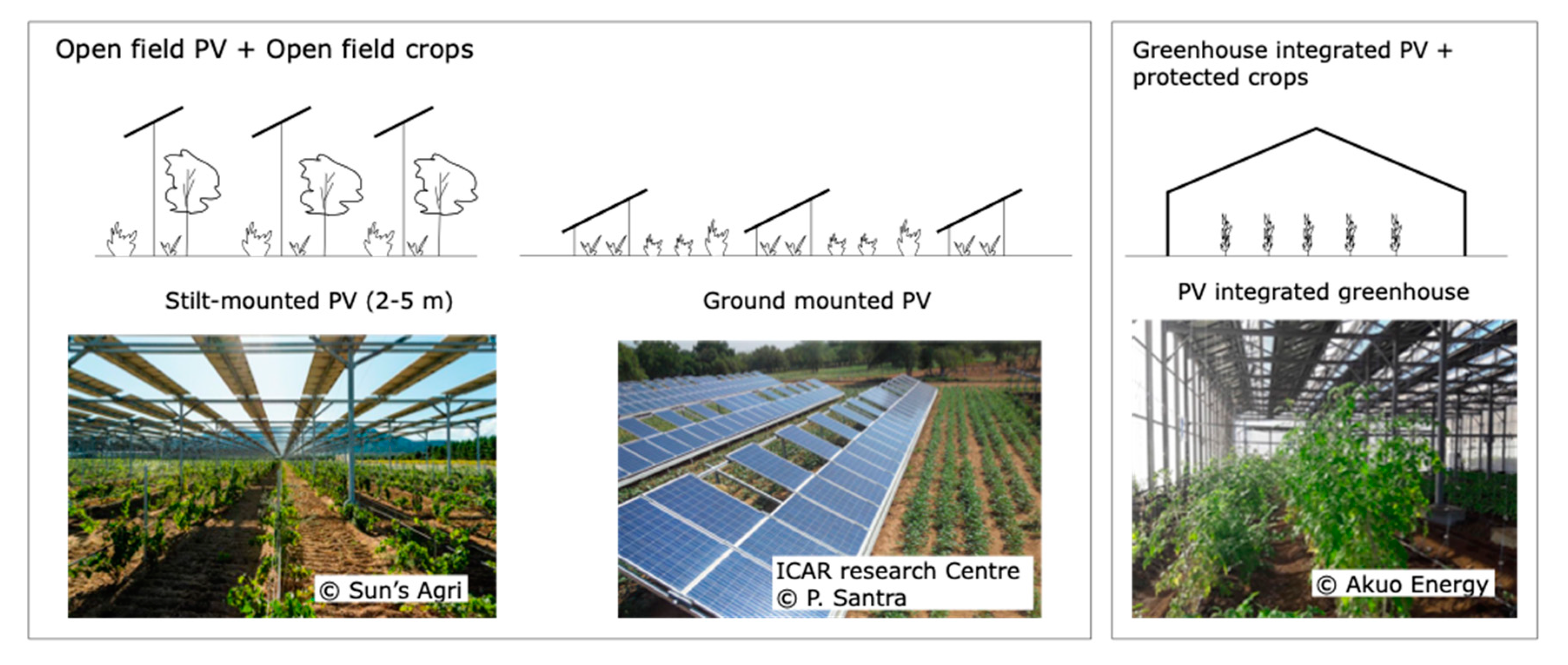 The enablers can range from the government to private sector.
The enablers can range from the government to private sector. - Realizing the advantages of agrivoltaics, which span the agricultural and energy sectors,
therefore need cross-sectoral dissemination and engagement initiatives. - Policymakers should investigate ways to enhance interactions between the private sector and governments' climate-smart agriculture, as the private sector plays a significant role in sustainability and innovation programs.
The aim of the session was to create awareness of the AVS innovation and inform policy & research to improve accessibility and rate of adoption to the community level through dialogue by different stakeholders in East Africa.
- What business models can be used in East Africa with high potential for success in adoption and investments in AVS?
- What tools exist among non-state actors (e.g. for capacity development, awareness, knowledge exchange and co-design) in designing and supporting adoption of AVS?
- What regional/national policies/strategies are available/ should be available to support, monitor and enforce co-use of land for energy and agriculture (AVS)?
22/06 Collaborative Climate Adaptation for food security in the African Water-Energy-Food Nexus Using Design Thinking and Systems Modeling
Note: Business Schools for Climate Leadership Africa (BS4CL Africa) brings together schools of business in building a collaborative framework for climate action to transform business education curricula that matches the needs and adapts to the realities of the African continent. A roundtable to launch BS4CL Africa was organised (06/11/2022) for deans of six leading African business schools as well as representatives from the African Chapter of the Principles for Responsible Management Education (PRME) and the European Business Schools for Climate Leadership (BS4CL).
22/06 Drought Resilience in Africa
This panel discussed: (a) Droughts and its impacts on the food-water-energy nexus (b) Climate change and increasing disaster risks (c) Promoting sustainable and renewable source of energy (and WEF more generally) (d) Integrating technology and indigenous knowledge to mitigate droughts (e) People-centred approach for disaster risk management.- Cranfield University, UK
- Penn State University, USA
- Sao Paolo University, Brazil
- Mohammed VI Polytechnic University (UM6P) Morocco
- University of the Free State, South Africa
22/06 Energy Transition and Water-Energy-Food (WEF) Nexus Security in Africa: Opportunities, Risks, and Trades offs
- What could be the risks and opportunities of hydrogen strategies for specific countries in Africa (a few examples from Northern and Southern Africa ) on the WEF security?
- What role could interdisciplinary and transdisciplinary approaches play in finding the needed tradeoffs between the required transition and the resources management justice?
- Although the essence of the WEF nexus concept is globally acknowledged as demonstrated by its integration into policy and legislative instruments; its operationalization has been challenging. Will the drive towards energy transition facilitate or further undermine the WEF nexus security?
- The Leave No One Behind Agenda aims to make those on the margins of society also benefit from development. How can WEF nexus facilitate or hinder the Leave No One Behind Agenda?
Speakers:
- Dr. Faten Attig Bahar (Tunisia)
- Dr. Felix Kwabena Donkor (Ghana)
- Prof. Ruby Hanson (Ghana)
- Prof. Oluseyi Adeyemi (UK)
- Dr. Henerica Tazvinga (South Africa)
- Prof. Kwenje Chrispine (Kenya)
22/06 From Global challenges to local solutions: how FAIR data, transdisciplinarity and innovation are sustainably shaping the marine research, management, communities and narratives of South Africa
This session discussed transdisciplinary approaches to sustainable management of the coastalenvironment and the people living within. (Related: FAIR and open data sharing in support of healthy oceans, seas, coastal and inland waters - HORIZON-INFRA-2022-EOSC-01-03)
- Moderator: Janine Adams (NMU)
- Anusha Rajkaran (UWC)
- Lyle Vorsatz (UCT)
- Rachel Wynberg (UCT)
- Linda Harris (NMU)
- Nina Rivers (NMU)
- Boudina McConnachie (RU)
- Anthony Bernard (SAIAB)
- Francesca Porri (SAIAB)
22/06 Participatory and citizen sciences: the Co-construction of an African scientific diplomacy
Little space is devoted to research in the Agenda 2063 of the African Union. Since the Lagos Plan in 1980, the Organization of African Unity (OAU) had asked African states to devote 1% of their budget to research, more than thirty years later, not a single African state has respected this recommendation. Is there an African science diplomacy? Why doesn't Africa have a stage diplomacy?- Mr. ATSE Kambo Martial
- Mr. Joburg Mahuyu
- Miss Esther Shakachite
- Professor Mr. Raymond Ebalé
- Mrs. Faye N'Diaye
- Mrs. Traore Doufin
27/06 Achieving Planetary Health Through Boundaries & Targets
A session druing the Sustainability Research & Innovation Congress 2023 was dedicated to Achieving Planetary Health Through Boundaries & Targets.
Future Earth and the Earth Commission - a part of the Global Commons Alliance - organised June 9 a conference on ‘Earth systems boundaries for a just world on a safe planet’.
The Earth Commission has defined a new set of boundaries that will inform science-based-targets for governments, cities and businesses to work toward, in order to secure a safe and just future in which humans and nature can thrive. By centering justice at its heart, this new science represents a quantum leap in our ability to understand Earth’s capacity to sustain life, and the role we humans play as guardians of our only home and each other.

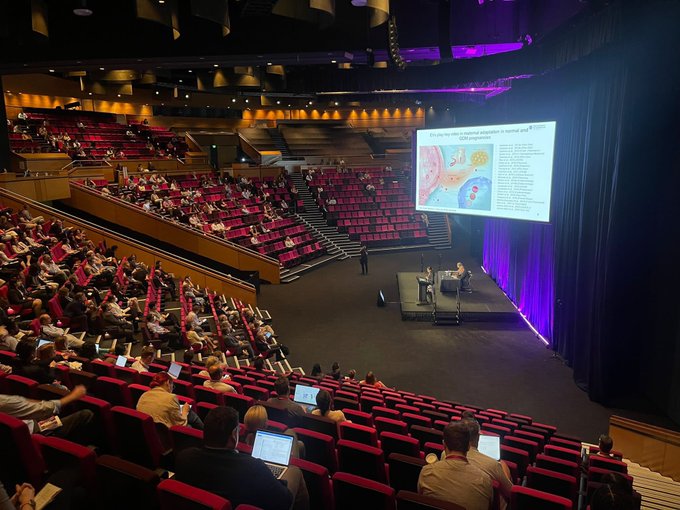



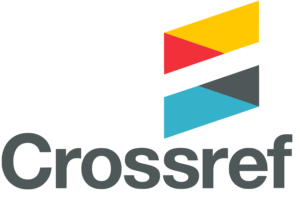




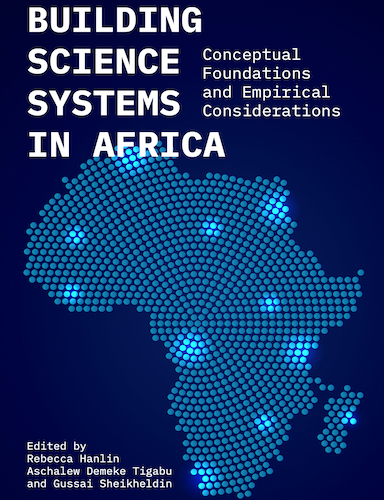


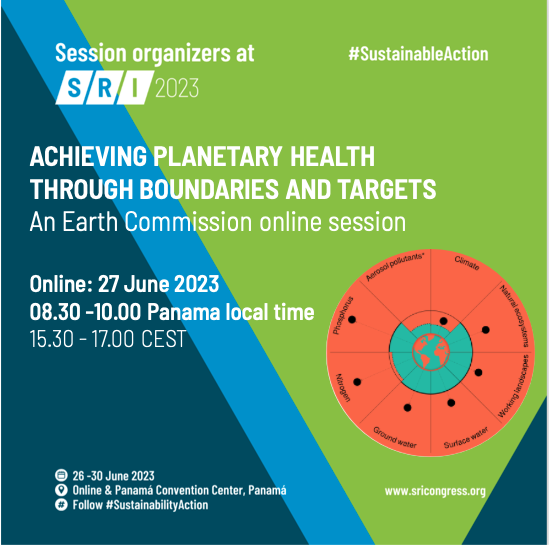
No comments:
Post a Comment